This Bank in Assam Has Only Women Employees and Customers
This bank in Assam gets over 250 customers a day, 75% of whom are illiterate women from low-income backgrounds. Meet bank founder Lakhimi Baruah, a believer in financial empowerment of women.
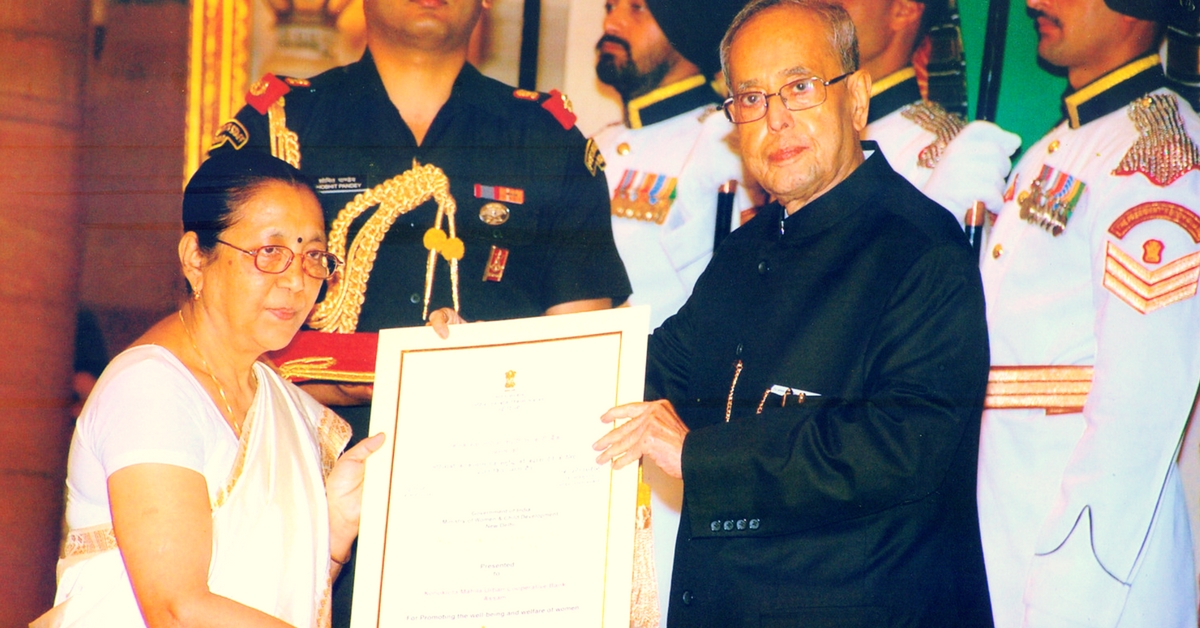
This bank in Assam gets over 250 customers a day, 75% of whom are illiterate women from low-income backgrounds. Meet bank founder Lakhimi Baruah, a believer in financial empowerment of women.
When Rashmi (name changed) contacted Konoklota Mahila Urban Cooperative Bank (KMUCB), she had a sick husband, two daughters to look after, no money, and no source of income.
Too intimidated by all the paper work and formalities required in regular commercial banks, she approached Lakhimi Baruah, founder of KMUCB, to try and get a loan to tide over this difficult situation.
To her surprise, her application was approved in no time at all and she got the loan — she was able to get her husband treated, her daughters started going to school and she even started a small business to earn some income.
“It feels good to see the change we can bring to the lives of people,” says Lakhimi.
The start
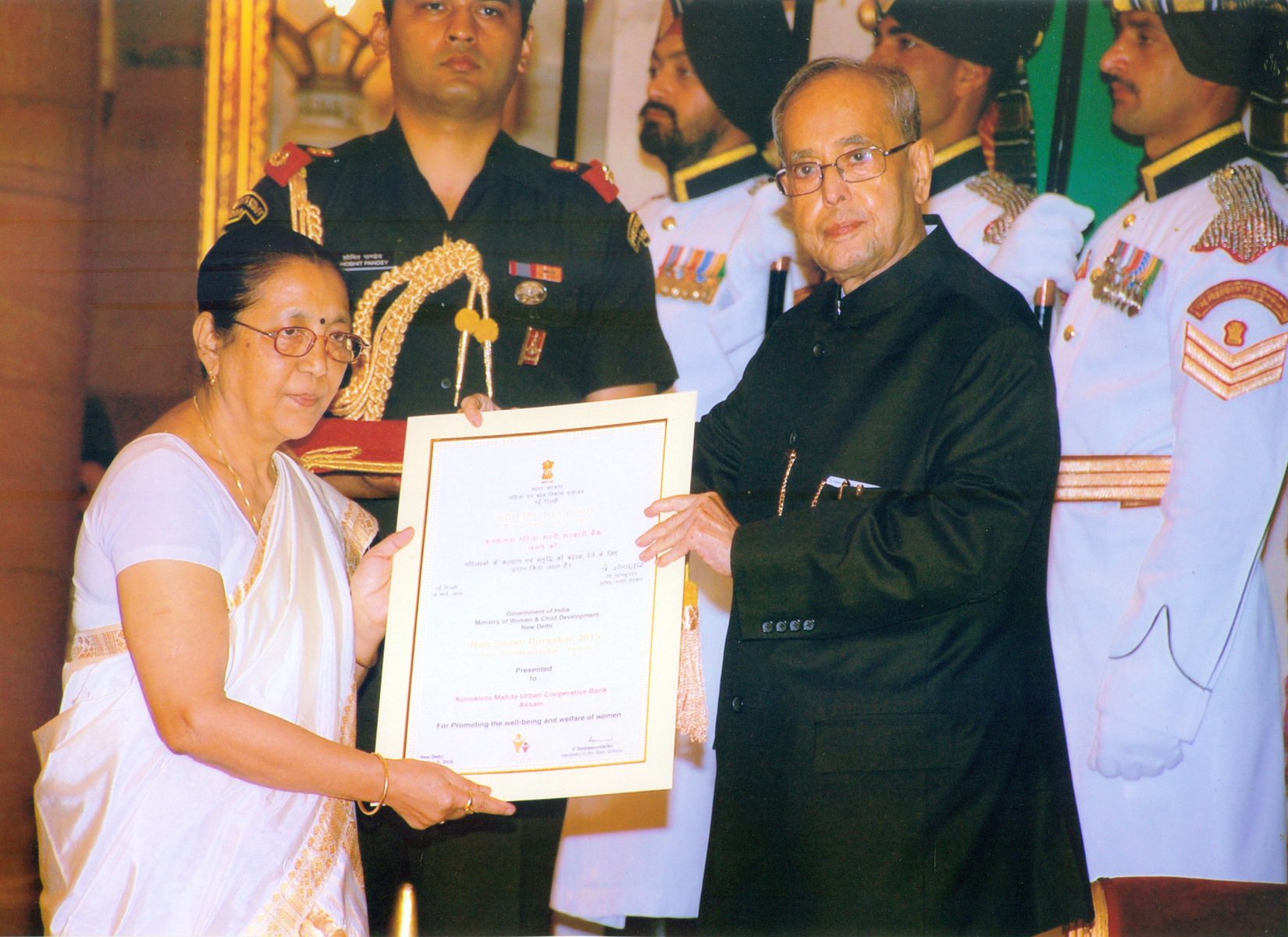
Before starting KMUCB, Lakhimi worked in a bank, which made her aware of how deprived and illiterate women barely manage to benefit from banking services.
She had also started a Mahila Samiti in 1983 at Dakshin Sarbaibandha area of Jorhat district, where she worked with a large number of economically and educationally backward women. These women remained financially insecure, even when they were engaged in some income generation activities, because they did not have any saving habits or financial literacy.
After working for several years in the region, Lakhimi was sure that immediate intervention was required.
Finally, in 1998, she was able to start KMUCB in Jorhat, with an initial capital of 8.46 lakh. The bank received its licence from the Reserve Bank of India in 2000. Lakhimi quit her job and dedicated her life to KMUCB.
“Women here in the northeast face a lot of problems. Family pressure, lack of opportunity and awareness are many reasons behind them not opening bank accounts. I thought an all woman bank could help address their needs,” Lakhimi says.
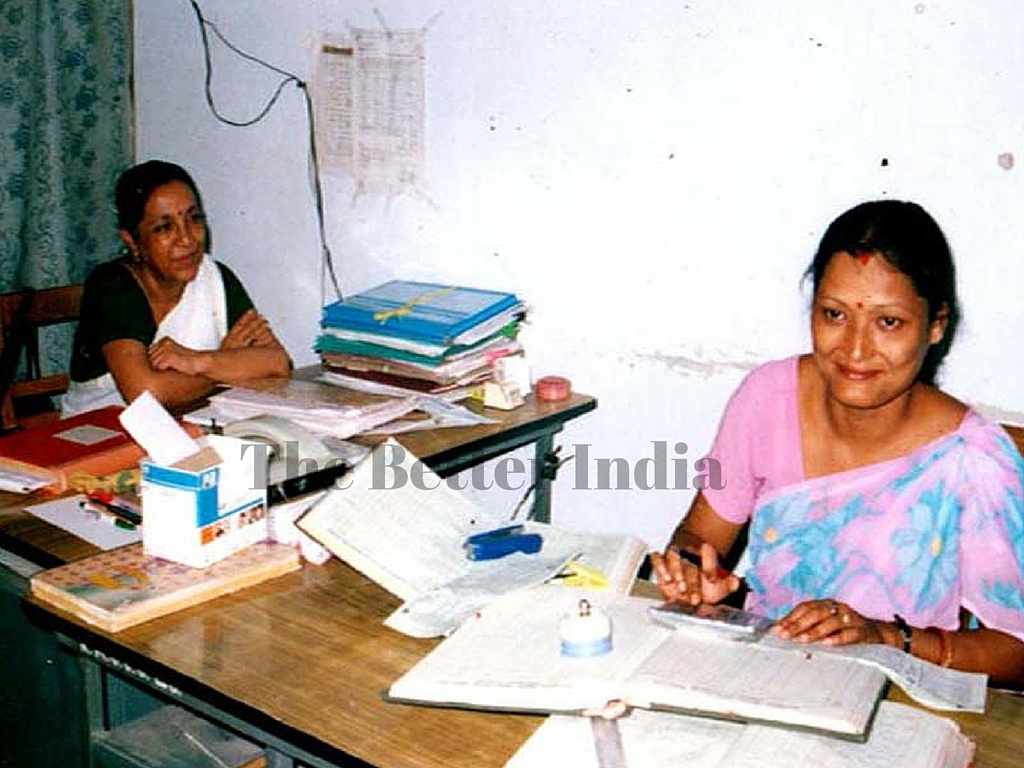
The bank only has women employees.
Today KMUCB has over 25,000 accounts and a working capital of over Rs. 6 crores. The bank has four branches in three districts. Over 300 self-help groups have benefited from various credit schemes of the bank. The bank has become so successful that it gets over 250 customers every day.
About 75% of the beneficiaries are illiterate and belong to the labour class. Also, about 65% of the customers belong to SC, ST and OBC classes.
“The idea is to engage and help women from all sections of the community, irrespective of their caste and background. The gates of the bank are open for all those women who genuinely need help,” Lakhimi says.
The bank has helped many women save their hard-earned money, which would otherwise be misused by family members and alcoholic husbands. As these women become regular visitors to the bank, they often share their personal issues with the employees.
This helps to build trust and gets them expert advice on how to handle their finances.
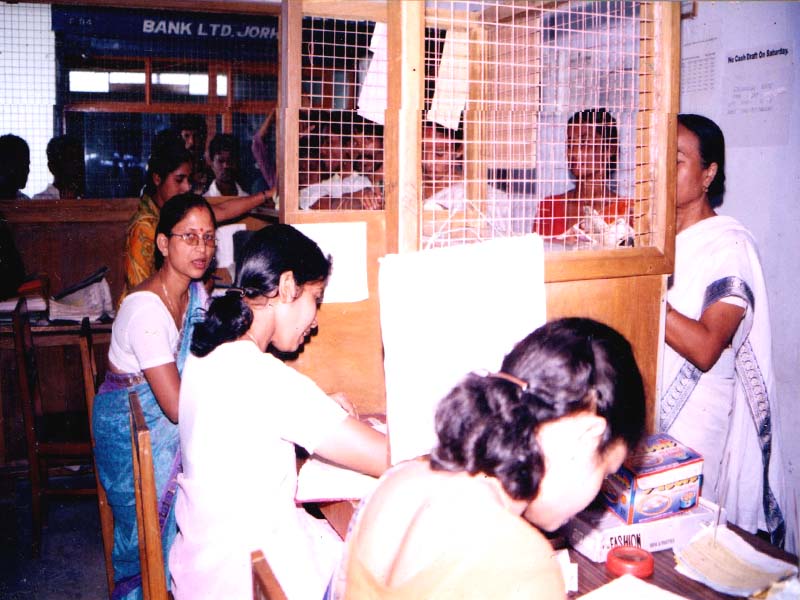
KMUCB allows women to open bank accounts with a balance as low as Rs. 100, compared to other banks that require at least Rs. 1,000 to open a bank account. The bank also offers the option to open a zero balance account, the Konoklota Daily Deposit (KDD).
In addition, KMUCB provides the opportunity to start a recurring deposit at just Rs 20. As most of the women are daily wage labourers, this scheme gives them the freedom to deposit small amounts every day.
KMUCB also provides soft loans to women, which they can use for daily needs like repairing the house, paying school fees for their children or arranging for safe drinking water. The recovery rate of the bank stands at a good 93%.
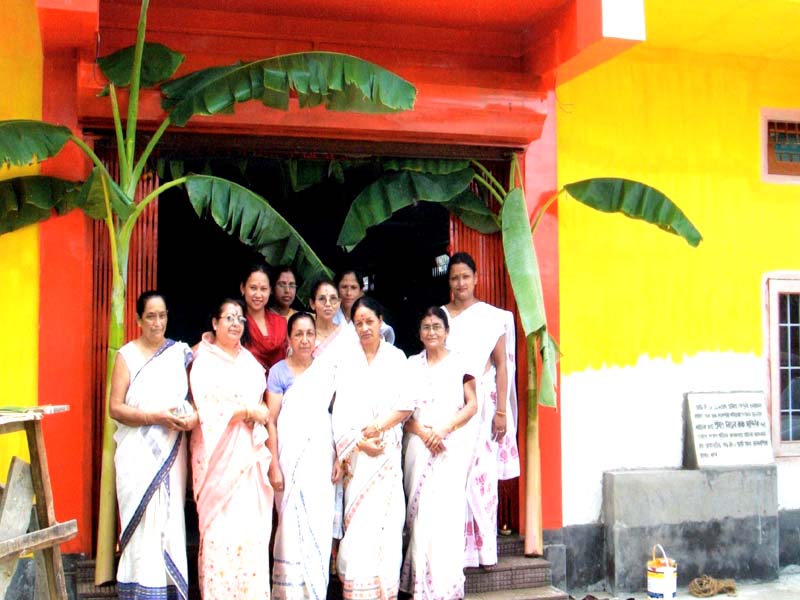
The future
Lakhimi wants to open more branches of the bank to reach out to a larger number of women.
As the government has launched various schemes for public sector banks, Lakhimi hopes that cooperative banks are given similar benefits.
“There are many things that a cooperative bank is restricted from doing. I would like the government to launch some benefits and schemes for such banks. This will help our initiative a lot and we would be able to reach out to more people,” Lakhimi says.
Check out the KMUCB website for more details.
Like this story? Or have something to share? Write to us: [email protected], or connect with us on Facebook and Twitter (@thebetterindia)
If you found our stories insightful, informative, or even just enjoyable, we invite you to consider making a voluntary payment to support the work we do at The Better India. Your contribution helps us continue producing quality content that educates, inspires, and drives positive change.
Choose one of the payment options below for your contribution-
By paying for the stories you value, you directly contribute to sustaining our efforts focused on making a difference in the world. Together, let’s ensure that impactful stories continue to be told and shared, enriching lives and communities alike.
Thank you for your support. Here are some frequently asked questions you might find helpful to know why you are contributing?


This story made me
- 97
- 121
- 89
- 167











